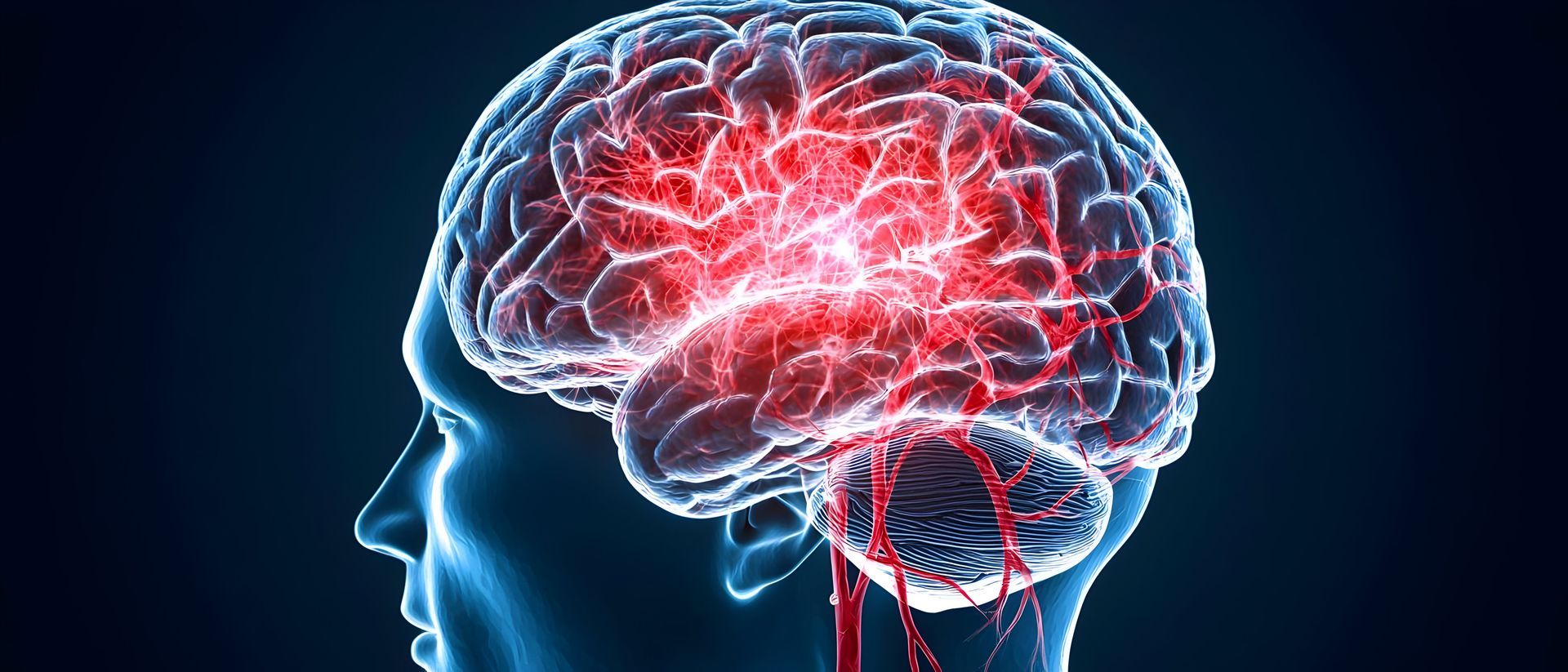The Hidden Mental Health Impacts of Car Accidents
Healing the Mind After a Crash
— Because Recovery Is More Than Physical
Healing the Mind After a Crash
— Because Recovery Is More Than Physical

When we think of car accidents, most people picture physical injuries — whiplash, broken bones, or neck and back pain. But what’s often overlooked is the emotional and psychological damage that follows. These hidden wounds can be just as painful, sometimes lasting far longer than the physical ones.
In this blog, we’ll explore how car accidents impact mental health, what symptoms to look for, and the steps you can take to recover — not just physically, but emotionally.
When we think of car accidents, most people picture physical injuries — whiplash, broken bones, or neck and back pain. But what’s often overlooked is the emotional and psychological damage that follows. These hidden wounds can be just as painful, sometimes lasting far longer than the physical ones.
In this blog, we’ll explore how car accidents impact mental health, what symptoms to look for, and the steps you can take to recover — not just physically, but emotionally.

When we think of car accidents, most people picture physical injuries — whiplash, broken bones, or neck and back pain. But what’s often overlooked is the emotional and psychological damage that follows. These hidden wounds can be just as painful, sometimes lasting far longer than the physical ones.
In this blog, we’ll explore how car accidents impact mental health, what symptoms to look for, and the steps you can take to recover — not just physically, but emotionally.


The Emotional Aftermath:
What You Don’t See
A car accident is a traumatic event. Even minor collisions can cause your body to release adrenaline and cortisol, the stress hormones that trigger fight-or-flight responses. Once the shock wears off, that rush fades — and that’s when emotional distress often sets in.
You might feel:
- Anxious or fearful about driving again
- Overwhelmed or in shock
- Angry or irritable about the situation
- Guilty, especially if someone else was hurt
- Detached from your surroundings
These emotions are normal in the short term. But if they persist for weeks or months, they may signal a deeper issue that requires attention.

The Emotional Aftermath:
What You Don’t See
A car accident is a traumatic event. Even minor collisions can cause your body to release adrenaline and cortisol, the stress hormones that trigger fight-or-flight responses. Once the shock wears off, that rush fades — and that’s when emotional distress often sets in.
You might feel:
- Anxious or fearful about driving again
- Overwhelmed or in shock
- Angry or irritable about the situation
- Guilty, especially if someone else was hurt
- Detached from your surroundings
These emotions are normal in the short term. But if they persist for weeks or months, they may signal a deeper issue that requires attention.
Common Mental Health Conditions After a Car Accident
Common Mental Health Conditions After a Car Accident
Post-Traumatic Stress Disorder (PTSD)
The Silent Injury
According to the National Institute of Mental Health, car crashes are one of the leading causes of PTSD in the U.S. Victims may experience:
- Flashbacks or vivid nightmares about the crash
- Panic attacks or anxiety when near vehicles
- Difficulty sleeping or concentrating
- Emotional numbness or avoidance of reminders
PTSD can develop days or even months after the incident, making early intervention crucial.
Depression and Emotional Withdrawal
Injury recovery, financial strain, or losing the ability to work can trigger depression. Common signs include:
- Loss of interest in daily activities
- Persistent sadness or hopelessness
- Fatigue or low energy
- Changes in appetite or sleep patterns
Depression can severely affect quality of life — but with therapy and support, recovery is possible.
Post-Traumatic Stress Disorder (PTSD)
The Silent Injury
According to the National Institute of Mental Health, car crashes are one of the leading causes of PTSD in the U.S. Victims may experience:
- Flashbacks or vivid nightmares about the crash
- Panic attacks or anxiety when near vehicles
- Difficulty sleeping or concentrating
- Emotional numbness or avoidance of reminders
PTSD can develop days or even months after the incident, making early intervention crucial.
Depression and Emotional Withdrawal
Injury recovery, financial strain, or losing the ability to work can trigger depression. Common signs include:
- Loss of interest in daily activities
- Persistent sadness or hopelessness
- Fatigue or low energy
- Changes in appetite or sleep patterns
Depression can severely affect quality of life — but with therapy and support, recovery is possible.
Anxiety/Panic Disorders and Fear of Driving
Even if you weren’t seriously injured, the fear of driving or being on the road again can be intense. You might:
- Feel tense or nervous behind the wheel
- Avoid highways, intersections, or driving altogether
- Experience racing thoughts or heart palpitations
This type of anxiety is known as vehicular or driving anxiety, and it’s common after traumatic crashes.
Emotional Distress and Behavioral Changes
Some survivors notice personality shifts or emotional changes. You may:
- Become easily startled
- Feel detached from loved ones
- Experience irritability or anger
- Withdraw socially
These emotional reactions are part of your brain’s way of processing trauma, but they can disrupt relationships and work-life balance.
Anxiety/Panic Disorders and Fear of Driving
Even if you weren’t seriously injured, the fear of driving or being on the road again can be intense. You might:
- Feel tense or nervous behind the wheel
- Avoid highways, intersections, or driving altogether
- Experience racing thoughts or heart palpitations
This type of anxiety is known as vehicular or driving anxiety, and it’s common after traumatic crashes.
Emotional Distress and Behavioral Changes
Some survivors notice personality shifts or emotional changes. You may:
- Become easily startled
- Feel detached from loved ones
- Experience irritability or anger
- Withdraw socially
These emotional reactions are part of your brain’s way of processing trauma, but they can disrupt relationships and work-life balance.

How to Prioritize Mental Health
After an Accident
1. Seek Professional Support
Therapists or trauma specialists can help you process emotions safely. Cognitive Behavioral Therapy (CBT) and EMDR (Eye Movement Desensitization and Reprocessing) are proven methods for trauma recovery.
2. Build a Support Network
Surround yourself with understanding friends, family, or support groups. Talking about your experience helps reduce isolation and fear.
How to Prioritize Mental Health
After an Accident
1. Seek Professional Support
Therapists or trauma specialists can help you process emotions safely. Cognitive Behavioral Therapy (CBT) and EMDR (Eye Movement Desensitization and Reprocessing) are proven methods for trauma recovery.
2. Build a Support Network
Surround yourself with understanding friends, family, or support groups. Talking about your experience helps reduce isolation and fear.

How to Prioritize Mental Health
After an Accident
1. Seek Professional Support
Therapists or trauma specialists can help you process emotions safely. Cognitive Behavioral Therapy (CBT) and EMDR (Eye Movement Desensitization and Reprocessing) are proven methods for trauma recovery.
2. Build a Support Network
Surround yourself with understanding friends, family, or support groups. Talking about your experience helps reduce isolation and fear.

3. Create a Routine
Establishing a daily structure helps you regain a sense of control. Regular meals, light exercise, and consistent sleep patterns promote emotional stability.
4. Practice Mindfulness and Stress Relief
Deep breathing, journaling, or meditation can calm the nervous system and reduce anxiety symptoms.
5. Don’t Neglect Physical Healing
Physical and emotional recovery are connected. Continuing medical treatment, attending therapy, and staying active within your limits can improve both body and mind.
3. Create a Routine
Establishing a daily structure helps you regain a sense of control. Regular meals, light exercise, and consistent sleep patterns promote emotional stability.
4. Practice Mindfulness and Stress Relief
Deep breathing, journaling, or meditation can calm the nervous system and reduce anxiety symptoms.
5. Don’t Neglect Physical Healing
Physical and emotional recovery are connected. Continuing medical treatment, attending therapy, and staying active within your limits can improve both body and mind.

Why It’s Important to Include Mental Health in Your Claim
In Arizona, emotional distress and psychological trauma are legally recognized damages in personal injury cases. This means therapy costs, loss of enjoyment of life, and long-term emotional suffering can be compensated.
However, you must have medical documentation — including diagnoses, treatment notes, or counseling records — to support your claim. That’s why seeking help early isn’t just good for your health — it strengthens your case, too.

Why It’s Important to Include Mental Health in Your Claim
In Arizona, emotional distress and psychological trauma are legally recognized damages in personal injury cases. This means therapy costs, loss of enjoyment of life, and long-term emotional suffering can be compensated.
However, you must have medical documentation — including diagnoses, treatment notes, or counseling records — to support your claim. That’s why seeking help early isn’t just good for your health — it strengthens your case, too.
The effects of a car accident go beyond physical injuries. Emotional wounds can last long after the crash, affecting your peace of mind, relationships, and confidence. But with the right care, healing is possible — both mentally and physically.
If you’re struggling after an accident, you’re not alone.
Reach out for help today and take the first step toward recovery.
The effects of a car accident go beyond physical injuries. Emotional wounds can last long after the crash, affecting your peace of mind, relationships, and confidence. But with the right care, healing is possible — both mentally and physically.
If you’re struggling after an accident, you’re not alone.
Reach out for help today and take the first step toward recovery.
If you’ve been in an accident and are dealing with emotional distress or anxiety, Call Christina Now.
Our free 24/7 helpline connects you with trusted mental health professionals, personal injury attorneys, and medical providers who truly care about your full recovery.
If you’ve been in an accident and are dealing with emotional distress or anxiety, Call Christina Now.
Our free 24/7 helpline connects you with trusted mental health professionals, personal injury attorneys, and medical providers who truly care about your full recovery.
